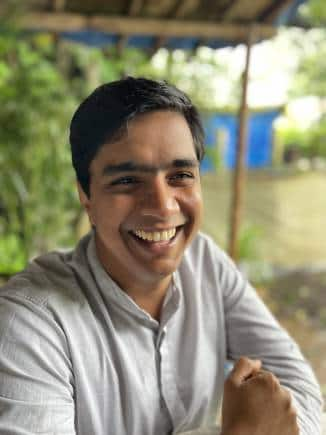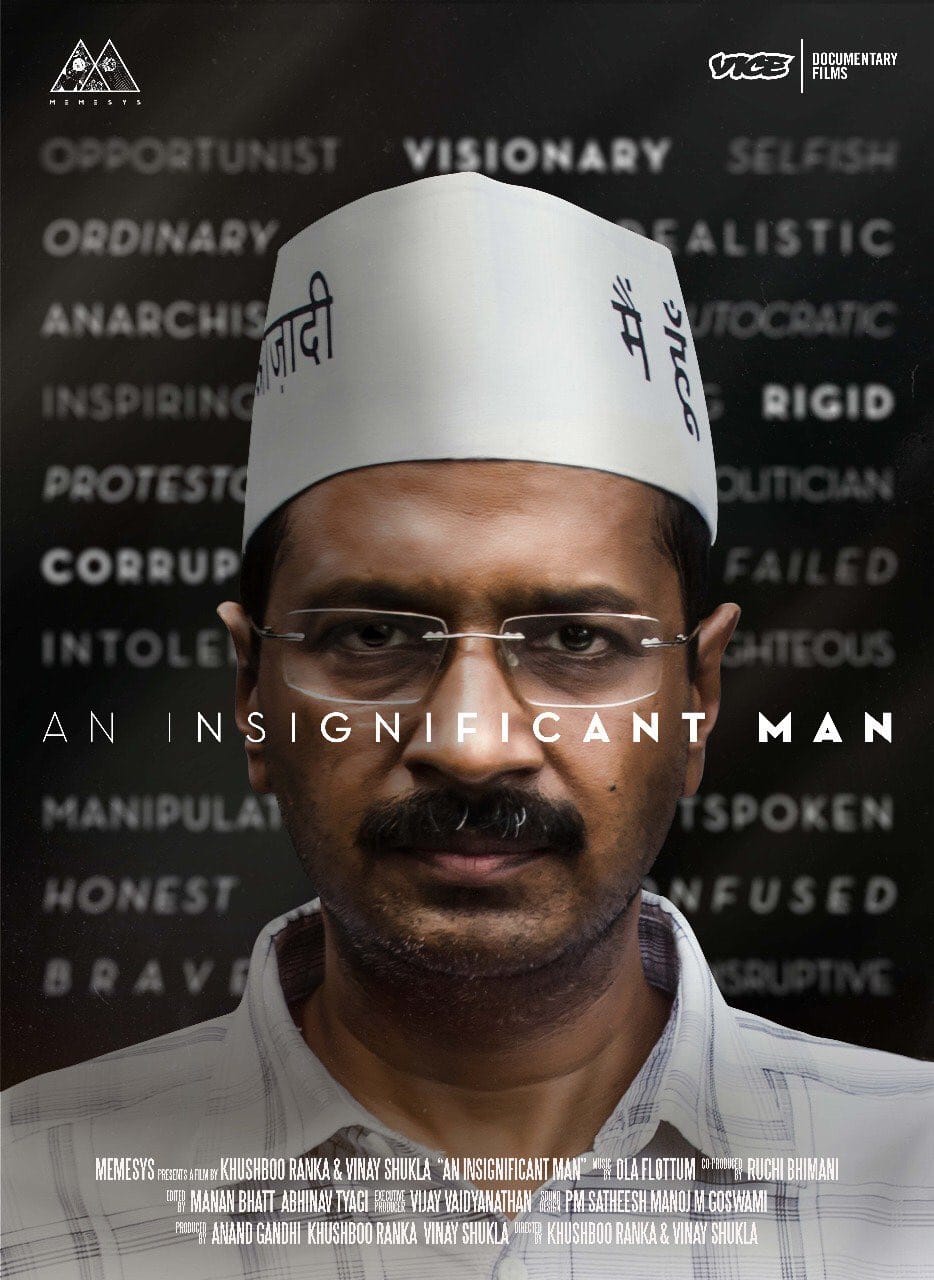



In early September 2016, a pathbreaking Indian documentary premiered at the Toronto International Film Festival (TIFF), making many uncomfortable back home. Directed by Khushboo Ranka and Vinay Shukla and produced by Anand Gandhi, An Insignificant Man soon ran into trouble in the country. The documentary on the rise of Arvind Kejriwal from a street protester to party chief and chief minister upset both politicians and censors, delaying its release.
Six years later, Ranka, Shukla and The Ship of Theseus director Anand Gandhi are back with a new documentary, this time on the state of the Indian newsroom. Directed by Shukla and produced by Ranka, Anand Gandhi and game designer Zain Memon, While We Watched is ready to start its journey on the international film festival circuit. Set inside a television newsroom in the national capital, the documentary is about a bunch of journalists trying to do their job right.
"The institution of journalism and journalists is in a moment of crisis," said Mumbai-based Shukla during an online press briefing at the Qumra 2022 in Qatar last month where While We Watched was part of the Doha Film Institute's annual industry incubator.
 Vinay Shukla
Vinay ShuklaThe film raises several questions: What does it mean to be a journalist right now? What does journalism do to people who practice it every day? How can slow journalism survive in a world of fast consumption? How can individuals who battle for the truth survive if the institutions, audiences, and models of support for them fade away?
"You see that journalists are struggling to do their job well and are villainised in our culture. My film is an attempt to humanise them," added the director. It took three-and-half years to make the documentary, which has come through industry and mentorship programmes at the Sundance Institute, Doc Society, London and Sheffield International Documentary Festival. At Qumra held during March 18-23, While We Watched pitched for sales, festivals and distribution. "We are now discussing collaborations with some incredible people from the industry," said the director.
Newsroom thrillerThe "we" that Shukla refers to is the team from the Mumbai-based Memesys Culture Lab, founded by Anand Gandhi, Zain Memon, filmmaker Neil Pagedar, producer Pooja Shetty and himself in 2015, to build a studio ecosystem that could translate ideas into culture defining pieces of media. The lab produced An Insignificant Man and India's first Virtual Reality (VR) films - Right to Prey directed by Ranka on the protests by women demanding entry into the Trimbakeshwar temple in Nashik, Maharashtra, and Cost of Coal about the impact of mining in Chhattisgarh directed by Faiza Ahmad Khan - within three years. "While We Watched is the next part of this conversation that we have been having with our audience," said Shukla.
It has been an obstacle-filled journey for the Memesys Culture Lab. "After the TIFF premiere (of An Insignificant Man), it took us another year to fight against censorship and release the film theatrically in India," said Shukla. "The film ran for nine weeks, surprising everyone and opening new doors for the film. We travelled to MIT, Princeton as well as universities across India with the film. Then we released the board game called Shasn, which was based on the film. Once all that was over, I began working on While We Watched."
"I have always been a fan of newsroom dramas. I love it when people are hunched around the table, arguing and fighting with each other on how to make our country better. My last film was a deep dive into politics and I was itching to do something around the news next. Just then, I gained access to one of the biggest newsrooms in India. And that's where this project started."
Shukla calls his new film, a "classic newsroom thriller" which goes inside the world of Indian TV news. "I spent two years inside an active newsroom, shooting in 4K with major news stories breaking around me," said the director, who followed a similar method of filmmaking for An Insignificant Man, carrying the camera for months and capturing the birth of the Aam Aadmi Party. "It was a very dynamic and yet sensitive shoot. We shot the entire process - right from the initial point of receiving a piece of information to the behind-the-scenes brainstorming sessions to the final news broadcast and then the audience reactions. There were multiple camera crews shooting with everyone - from top management to the news anchor to the junior staff. This helped us understand and capture the bigger picture."
Multiple crises"This project is a surreal witness to the live unfolding of a watershed moment in the fight for free press and democracy in India," Shukla said in his director's note. "I am a cinematographer-director who thrives on telling extremely personal stories that sit at the heart of larger power structures and force us to question and hold dear our values in a shifting world. When shooting my films, I spend years inside any single institution—slowly documenting and learning my way around," said Shukla.
"The Indian media is currently suffering from multiple crises - financial and ethical and the blurred lines between. It’s a complex world of manufacturing truth that is difficult to translate into a personal journey. I was keen on finding and telling a story that would help me humanise the process of news and help understand journalists and their job better. I feel there is currently a confidence crisis wherein people don’t trust the process of news, and while there may be many complex reasons behind this, I felt the urge to really go behind the scenes and spend time with journalists who are trying to do better."
Shukla isn't ready yet to reveal the TV newsroom in Delhi and the journalists he has filmed for the documentary, instead racing against time to find the right festival to premiere While We Watched. How does he handle the decreasing lack of faith and respect for the media? "There are no easy answers to that question," he said. "I believe there are two ways to start making our news better - internal measures taken by news organisations themselves, and external regulatory framework around news organisations. Internal measures include better employment contracts for journalists, institutional protection against journalistic risks, diversity in hiring and building better information systems within news organisations. We are living in a world of complex narratives and it's the job of news organisations to train their journalists. External measures would include better regulations around news."
The new Memesys Culture Lab production has brought in British producer Luke Moody, a former head of film at Doc Society known for his works with contemporary artists, as a co-producer. "Luke has incredible vision and I admire his body of work. He has worked with artists like (Beirut-based contemporary artist and Turner Prize nominee) Lawrence Abu Hamdan and (London-based contemporary artist) Aura Satz in multiple mediums. Having him onboard has enabled us to bring an international perspective to a globally relevant story. I met him on my first film and we have worked very closely since," Shukla said.
Shukla is optimistic about the future of Indian journalism. He said, "There are still an incredible bunch of journalists in every organisation who are trying to do their job right. Also, there are younger news organisations which are doing fantastic work."
 'An Insignificant Man' had its world premiere at the Toronto film festival in 2016.
'An Insignificant Man' had its world premiere at the Toronto film festival in 2016. Discover the latest Business News, Sensex, and Nifty updates. Obtain Personal Finance insights, tax queries, and expert opinions on Moneycontrol or download the Moneycontrol App to stay updated!
Find the best of Al News in one place, specially curated for you every weekend.
Stay on top of the latest tech trends and biggest startup news.